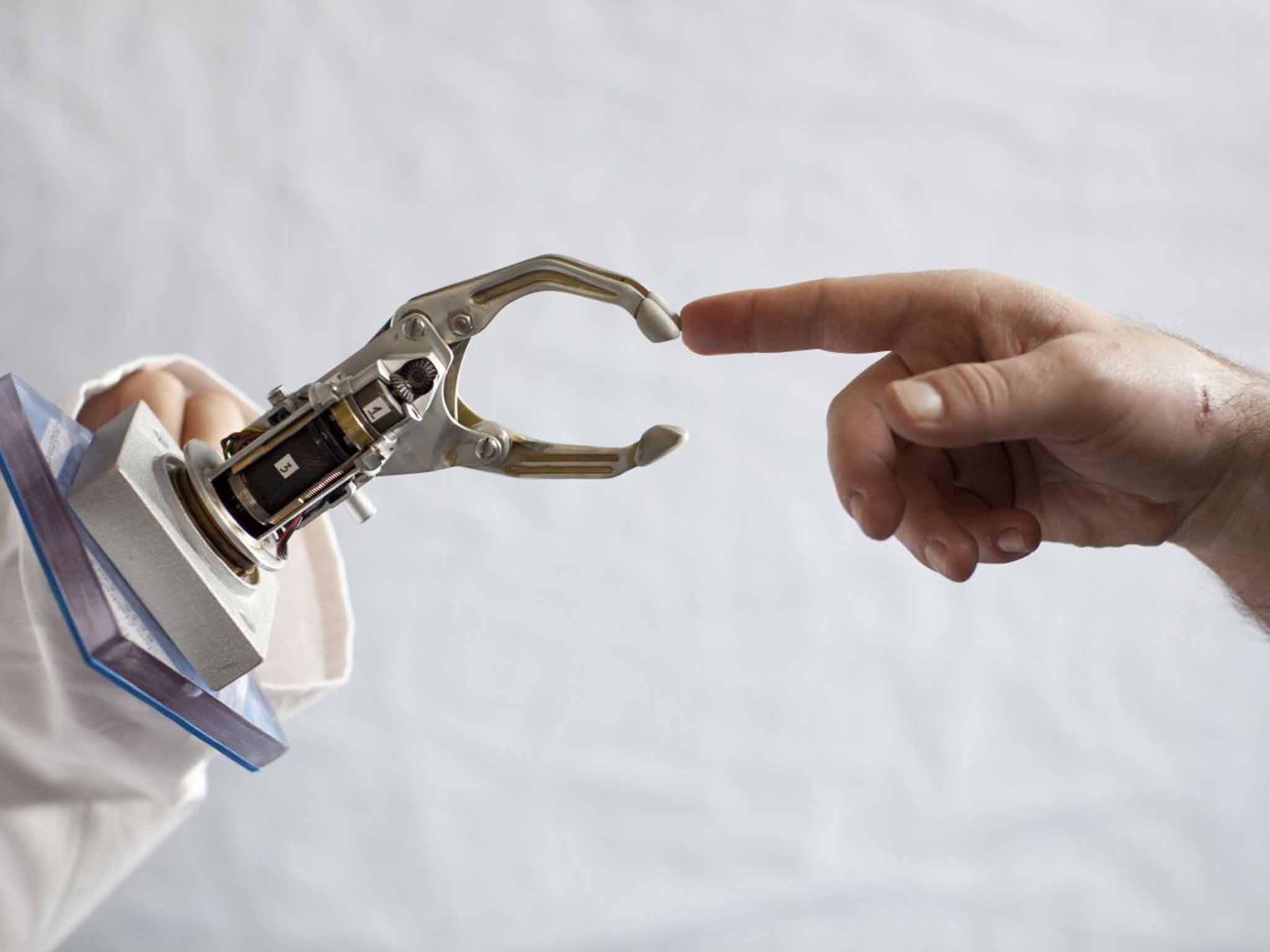Prosthetic hand lets man actually feel what he touches for the first time
Technology, developed by the US government, marks the first time that people have been able to feel through prosthetics

Your support helps us to tell the story
From reproductive rights to climate change to Big Tech, The Independent is on the ground when the story is developing. Whether it's investigating the financials of Elon Musk's pro-Trump PAC or producing our latest documentary, 'The A Word', which shines a light on the American women fighting for reproductive rights, we know how important it is to parse out the facts from the messaging.
At such a critical moment in US history, we need reporters on the ground. Your donation allows us to keep sending journalists to speak to both sides of the story.
The Independent is trusted by Americans across the entire political spectrum. And unlike many other quality news outlets, we choose not to lock Americans out of our reporting and analysis with paywalls. We believe quality journalism should be available to everyone, paid for by those who can afford it.
Your support makes all the difference.Researchers have created a prosthetic hand that people can actually feel through, for the first time ever.
The technology lets paralysed people feel actual sensations when touching objects — including light taps on the mechanical finger — and could be a huge breakthrough for prosthetics, according to its makers.
The tool was used to let a 28-year-old man who has been paralysed for more than a decade. While prosthetics have previously been able to be controlled directly from the brain, it is the first time that signals have been successfully sent the other way.
“We’ve completed the circuit,” said DARPA program manager Justin Sanchez in a statement. “Prosthetic limbs that can be controlled by thoughts are showing great promise, but without feedback from signals traveling back to the brain it can be difficult to achieve the level of control needed to perform precise movements.
“By wiring a sense of touch from a mechanical hand directly into the brain, this work shows the potential for seamless bio-technological restoration of near-natural function.”
The prosthetics work by running wires from the part of the brain that controls movement into the special hand, as part of a project by Defense Advanced Research Projects Agency, part of the US Department of Defense.
The man was able to accurately report when his finger was being touched 100 per cent of the time, and said that it was as if his own hand was being touched.
“At one point, instead of pressing one finger, the team decided to press two without telling him,” said Sanchez, who oversees the Revolutionizing Prosthetics program, in a statement. “He responded in jest asking whether somebody was trying to play a trick on him. That is when we knew that the feelings he was perceiving through the robotic hand were near-natural.”
Join our commenting forum
Join thought-provoking conversations, follow other Independent readers and see their replies
Comments